6.3.1 Magnetic Fields
1/25
There's no tags or description
Looks like no tags are added yet.
Name | Mastery | Learn | Test | Matching | Spaced |
|---|
No study sessions yet.
26 Terms
What causes magnetic fields
Permanent Magnets
Moving Charges- Electric current
Where do magnetic field lines go from
North to South AND they NEVER OVERLAP
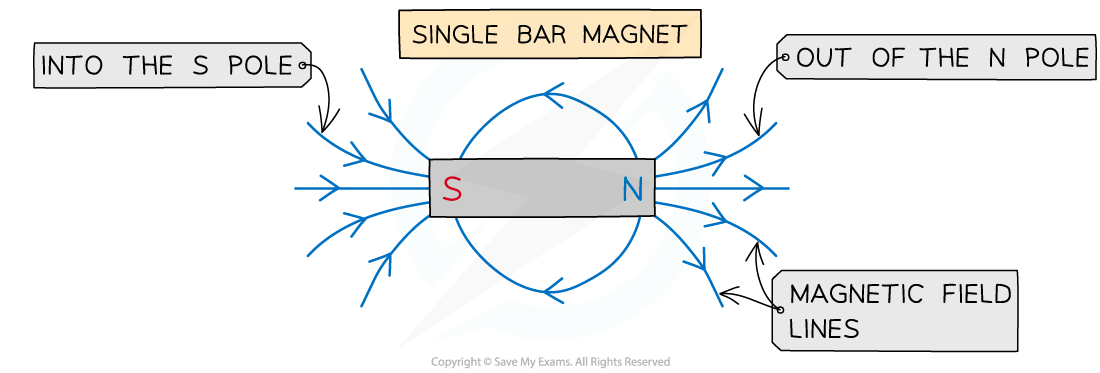
What does the arrow represent
Direction at which a free north pole would move
Equally spaced Parallel lines indicate what?
Uniform field
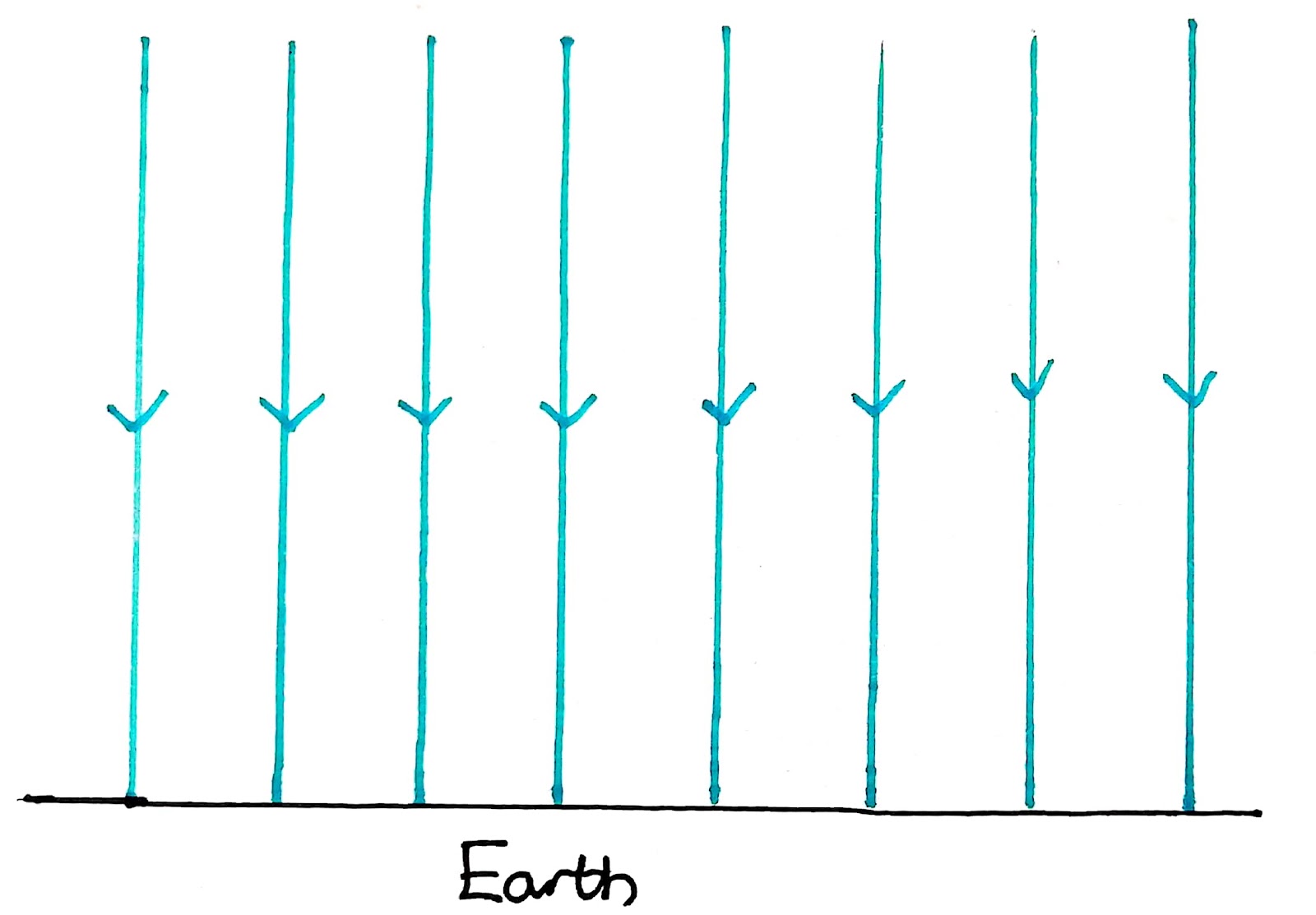
What is the rule for attraction/repulsion
Opposite Attract!
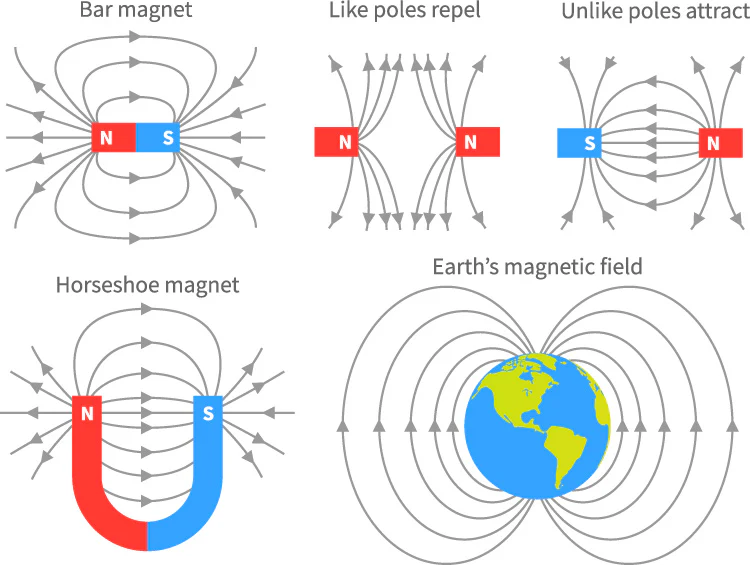
Can one pole exist alone?
No. Either two poles or no poles. Magnetic poles always exist in pairs; a single pole cannot be isolated.
Natural magnetic Elements are
Iron Cobalt and Nickel
What are two methods of showing the magnetic field around a bar magnet
1- Using iron filings
2- Using small compasses
How can iron filings be used to show magnetic field around a bar magnet
1- Place the magnet
2- Place a piece of paper on top of the magnet
3- Sprinkle iron filings on the paper and gently tap it. The filings will align along the magnetic field lines, visually representing the field.
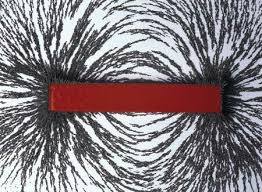
What is a disadvantage of using iron filings
They do not represent the direction of the magnetic field lines
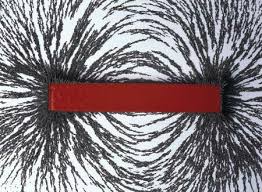
How can we identify magnetic field using compasses
1- Place the compass around a bar magnet
2- Draw a dot at which the North pole of the compass points
3- Continue by placing the compass at the same point
4- Draw an arrow where the North pole pointed
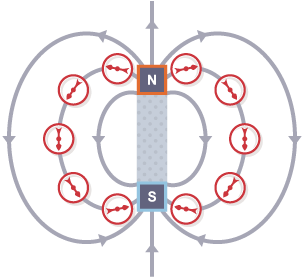
How does the magnetic field strength vary around the bar magnet
It decreases further from the pole. The spacing between the field lines increases, showing a weaker field strength
Is copper magnetic
NO!
Why does a needle on a compass deflect near a current carrying wire
Electrons move producing a change in the electric field which generates a magnetic field that interacts with the needle causing it to deflect . This can be explained by the right hand rule
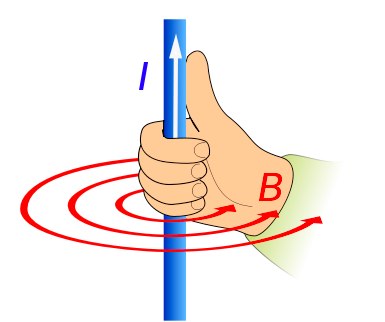
How to represent current/ magnetic field going into and out of the page
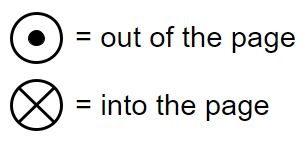
How to represent the magnetic field pattern around a coil of wire attached to a battery
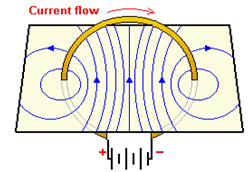
What is a solenoid
a current-carrying coil of wire
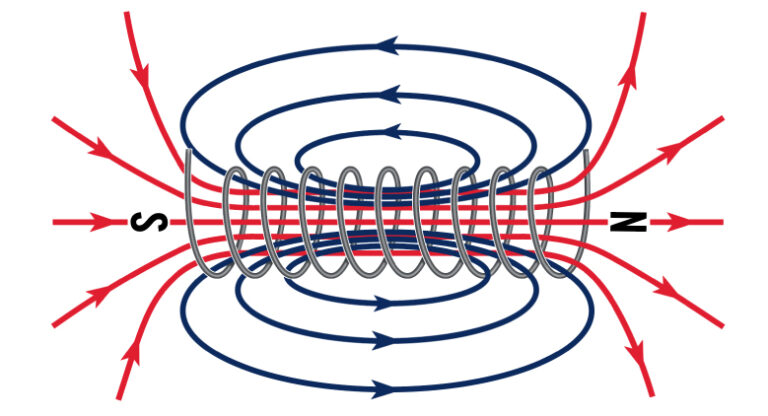
Why does the strength of the magnetic field around a current-carrying wire increase when the wire is made into a solenoid
Magnetic field adds up because they point in the same direction making a stronger magnetic field.
So,
Field line concentration increases and the field superpose
How does the strength of the magnetic field vary around the solenoid? Inside and Outside
Inside:
-The field is uniform(represented by equidistance field lines)
-Strong: the magnetic field created by each turn is concentrated and aligned in the same direction
Outside:
- Non-uniform
- Weak: It gets weaker further from the solenoid
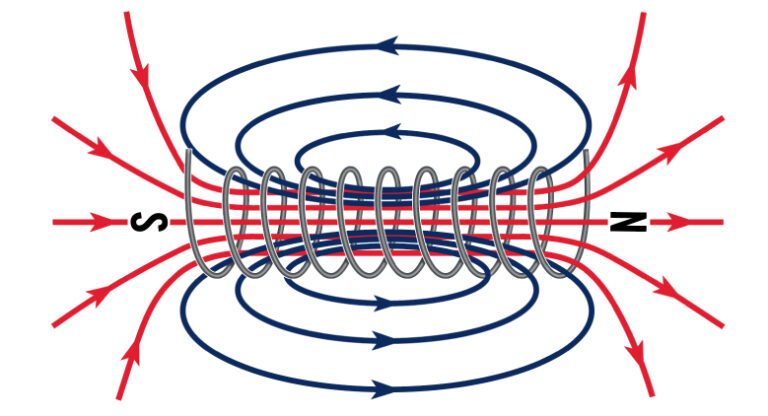
What Fleming’s Left-Hand Rule
thuMb- Motion
First finger- Field
seCond finger- Current

What is magnetic flux density
the amount of magnetic flux passing through a unit area that is perpendicular to the direction of the magnetic field.
it is a vector quantity

How to calculate the force on a current-carrying conductor
F=BILsin(theta)
F- force (N)
B-magnetic flux density (Tesla-T)
I-current (A)
L- length of wire ( m)
What happens when a wire cuts a magnetic field at 90 degrees
The force is at its maximum. Sin(90)=1
What happens to the magnitude of the magnetic field when the wire is not perpendicular to the field
When the wire is rotated, component of current perpendicular to the field decreases so magnetic force decreases
How to determine the uniform magnetic flux density between the poles of a magnet using a current carrying wire and digital balance
Place the magnet on a digital balance
Place inflexible wire between the magnets
Calibrate the balance and zero it before turning on the current
Close the switch to allow current to flow
The wire will be pushed by the magnet according to Fleming’s Left Hand Rule
The wire exerts an equal and opposite force on the magnets ( Newton’s 3rd law)
This will show a reading on the balance
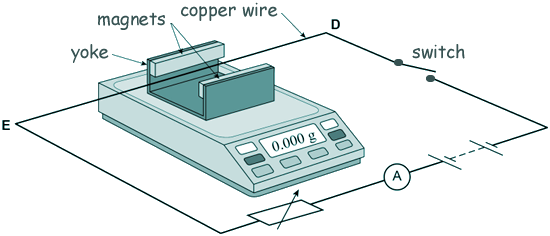
What happens to the reading if the wire is at an angle
The component of current perpendicular to the magnetic field decreases
Magnetic force decreases
The reading on the balance decreases